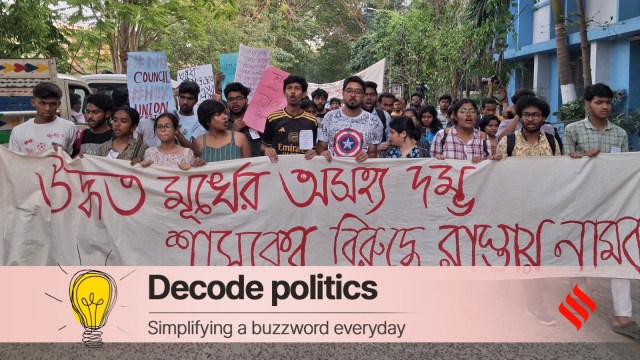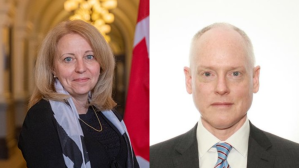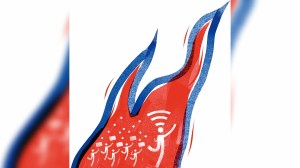On March 1, state Education Minister Bratya Basu arrived at JU to attend the annual general meeting of the Trinamool Congress (TMC)-affiliated West Bengal College and University Professors Association when students gheraoed his car and allegedly heckled him. The protest was organised by members of the CPI(M)’s student wing Students’ Federation of India (SFI) and other Left-wing organisations demanding that union elections be held at the earliest.

Basu later got admitted at the SSKM hospital while the CPI(M) alleged that a vehicle in the minister’s convoy injured a student, with the party drawing a parallel with the 2021 Lakhimpur Kheri incident in UP in which a BJP leader and Union Minister’s son was accused of running over a group of protesting farmers.
Story continues below this ad
On Sunday, seven FIRs were filed at the local police station in connection with the incident, and a former JU student was arrested for an incident of arson later on Saturday. While the SFI has demanded Basu’s resignation, the TMC has backed him, saying the protesters “planned” the attack on the minister. While the TMC looked to defuse the tension on Tuesday, the JU administration discussed ordering a high-level probe into the March 1 violence and said it would approach the higher education department about holding the student union polls.
When were the student union elections stopped in Bengal?
These elections have been on hold for several years. While JU last saw student union elections in 2020, in most colleges and universities in the state, they were held over a decade ago, in 2013.
In February 2013, the TMC government suspended student union elections, initially for six months, after a police sub-inspector was shot dead in Kolkata’s Garden Reach area. The officer was on duty outside Harimohan Ghose College during the filing of nomination papers for the student union election when he was killed.
Amid a freeze on student union elections, the SFI took to the streets that April. When the police attempted to whisk away a group of protesters, SFI leader Sudipto Gupta, a student of Rabindra Bharati University, died after sustaining a head injury. While the CPI(M) alleged that 22-year-old Gupta was killed in police custody, the police claimed it was a case of accidental death and that Gupta was fatally injured when he fell from the police bus and hit a lamppost.
Story continues below this ad
What happened in 2019-20?
State Education Department officials said student union elections had been irregular since 2013. “After 2016, no election has been conducted in universities and colleges in the state,” the official added.
In 2019-20, the elections were reintroduced in four universities: JU, Presidency University, Diamond Harbour Women’s University, and Rabindra Bharati University. While the SFI won the elections in Presidency and the JU Arts faculty, the TMC’s student wing Trinamool Chhatra Parishad (TMCP) won uncontested in Rabindra Bharati. In Diamond Harbour, the elections were not held, with the TMCP declared the winner. The Covid-19 pandemic in 2020 interrupted the elections in the following couple of years.
Has the TMC spoken earlier about restarting the campus elections?
Yes, it has. Though the students’ wings of several Left parties, including the SFI and the All India Democratic Students Organisation, have been pushing since then for the elections to be restarted, the government has appeared reluctant.
Story continues below this ad
In July 2022, Bratya Basu said the state government was keen on conducting these elections in a “free and fair” manner and expressed hope that the students’ outfits of all Opposition parties would participate. But nothing came of it.
In 2023, the SFI submitted a deputation to Basu. At the time, the minister clarified that the elections would be held after the panchayat polls. “Elections in colleges and universities in north Bengal, south Bengal and other belts will be held on different days, though I haven’t yet spoken to Chief Minister Mamata Banerjee about this,” Basu said back then.
What role did the R G Kar protests play?
As the protests against the TMC government intensified after the rape and murder of a doctor at Kolkata’s R G Kar Hospital last August, doctors took the lead in the demonstrations and some of them went on a hunger strike. One of the points in their charter of demands was restarting the student union elections. During the negotiations, to break the deadlock, Chief Minister Mamata Banerjee agreed to most of the demands and said the campus elections would be restarted by March 2025.
“Though the CM assured them, till now no preparations have been made to organise student union elections in the state,” said a senior state government official.
Story continues below this ad
What are the political implications for TMC and CPI(M)?
The TMC will not want to have a full-blown students’ unrest on its hands as it prepares to lay the ground for the Assembly elections next year.
One cascading effect could be the doctors restarting their protests, given that the state government does not appear prepared to hold the campus elections. On Tuesday, Basu reached out to the injured student, according to his father, and expressed regret over the incident. The heat generated by the push to restart the elections has forced the TMCP to also back the demand. “We are the only organisation honestly demanding students’ union election,” said TMCP state president Trinankur Bhattacharya. “The other organisations are doing drama because they do not have a presence in even 10% of the colleges. We must have faith in the CM.”
If the college elections are restarted now, and the TMCP ends up losing in major colleges and universities, it could present Mamata Banerjee with an optics problem ahead of the Assembly elections and strengthen the Opposition.
For the TMC, there is also a lesson from contemporary political history. In 2005, during a students’ protest in JU, the police beat up the demonstrators and it fuelled anti-CPI(M) sentiment in the state as the Mamata Banerjee-led party, then in the Opposition, latched onto it. The following year, the SFI lost the students’ union election in the JU Arts faculty after well over a decade. Though the CPI(M) returned to power convincingly in the Assembly polls the following year, the defeat in JU provided an impetus to Opposition politics that was missing earlier. In hindsight, it heralded the start of a shift in state politics. The subsequent events in Singur and Nandigram in the following two years marked the beginning of the end of the three-decade Left rule in Bengal.
Story continues below this ad
For the CPI(M), a sustained agitation arising out of this will provide a much-needed boost to its student organisation and help keep the TMC on its toes in the short-term. In the long run, it wants campuses such as JU, Presidency, and Calcutta University to be more politically active since over the decades they have produced leaders for it and the suspension of the campus elections has proved to be detrimental for it. Left leaders such as Mohammad Salim, the current CPI(M) state secretary; Sujan Chakraborty, the former Lok Sabha MP and central committee member; and the late Buddhadeb Bhattacharya, the former CM, came up through college politics.

































